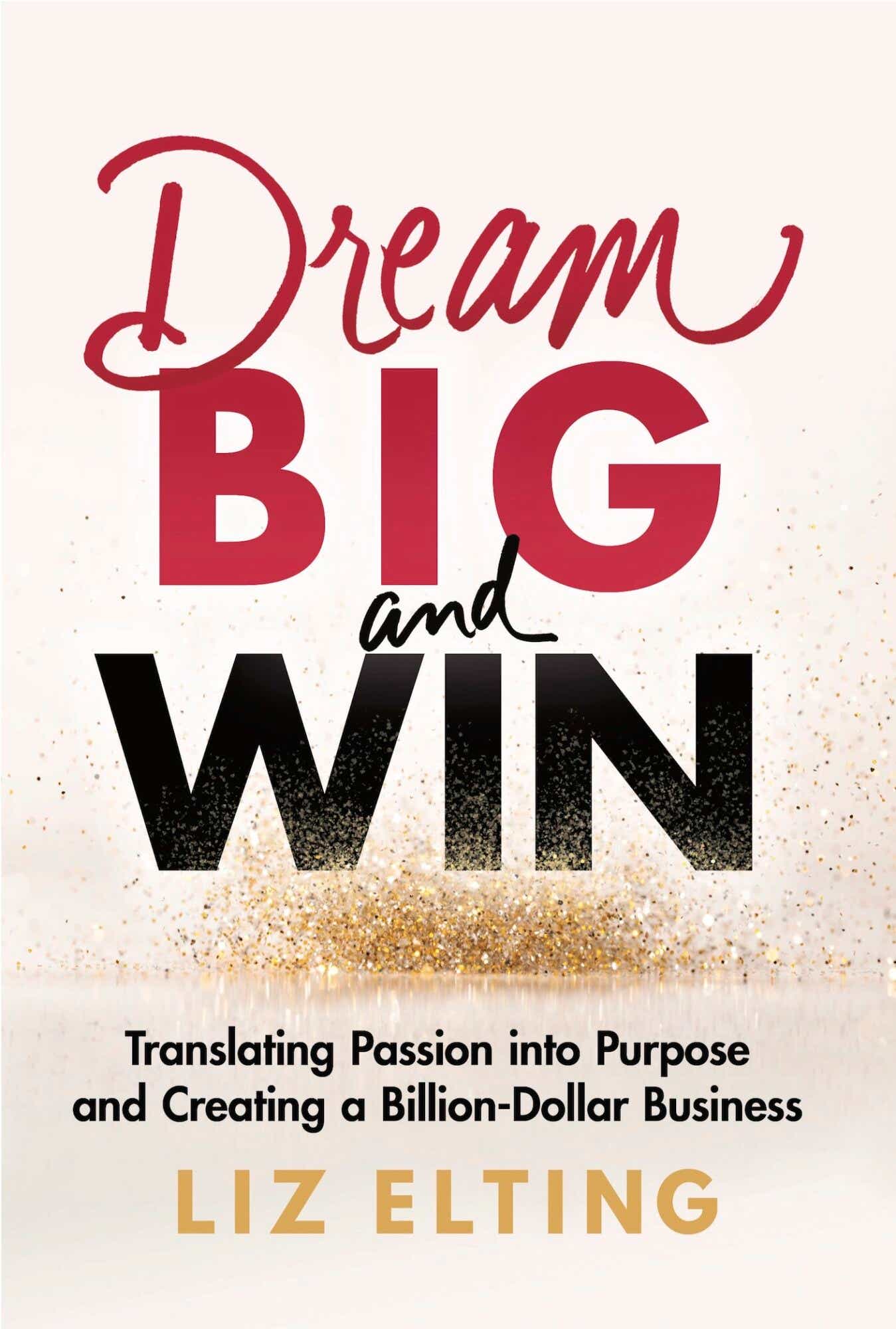Liz Elting’s net worth is now close to $400 million. But in 1992 before she went on to co-found a billion-dollar translation business, she was flat broke. At the time, she was fresh out of business school and had just started a job she quickly grew to detest.
After about four mind-numbing weeks of working in equity arbitrage at a major French bank (and chafing under the sexism that festered within her team), Elting had had enough. She put in her two weeks’ notice and set off to build TransPerfect with her ex-boyfriend in their NYU dorm. In a new memoir, Dream Big and Win, out Sept. 26, Elting describes exactly what goes into creating a global enterprise from the ground up. In the following excerpt, she goes into detail about the moment she decided to bow out of corporate finance and strike out on her own.
I did my job. And I hated it.
I’ve always loved working; that’s been a constant in my life since childhood. But for the first time in this situation, I couldn’t muster the strength to push through it with a smile on my face. My heart wasn’t in it. I despised the job — especially because there were too many strings attached to it. My fear was that Paresco wasn’t a one-off, that no matter where I’d go in banking and finance, I’d encounter a similar circumstance. I wasn’t going to change myself to fit in, trading my pretty suits for something less feminine or learning how to speak locker room. I didn’t want to have to become one of them to succeed. Yet the patriarchy was real, and I’d been lucky to dodge it for as long as I had.
What choice did I have?
Weathering the Change
Late that night, I headed home in the stifling humidity. The air felt charged, as though a storm were coming. As I walked, a plan began to take shape. I’d mulled over what it might take to start a translation business ever since my time at Euramerica. I saw what they got wrong, and I knew I could do it better. I always had a Euramerica-style startup in the back of my mind, but figured I’d work in finance for a while, do all my learning on someone else’s dime. Then, once I had a nest egg, I’d start my own shop, but that would be years in the future.
But what if I did it now instead? What if I created the opportunity I wanted? What if instead of changing myself, I changed my circumstances?
Hell, I was used to living like a student; what was a little more time not having money? Sure, I wanted to move somewhere better, but after every terrible day in the office, the sad dorm room felt like an oasis. My brain churned with possibilities as I passed the familiar landmarks on my long trudge home.
My MBA program educated me on more than just facts and figures; it taught me how to think and how to break down a complex solution into manageable bits. Looking back, I must always have known I’d start a translation company, because in my rare off-time, I’d been chatting with my old Euramerica friends and clients. I grilled them on the industry, asking them what they thought about the potential for growth. Every single person had a reason to greenlight the idea. I’d already been piecing together those manageable bits, and I didn’t even realize it.
In 1992, I saw the trend toward globalization. The growing access to connectivity was changing the face of business. Multinational corporations were expanding. Transportation and communications costs were decreasing. Banking systems were modernizing. Technology was moving forward at light speed. Supply-chain management was improving, thanks to all these factors. The market was right, and relatively untapped. Global business meant the need for global translation services.
I knew two things in that moment:
- We were on the precipice of massive change.
- I could be an agent of that change.
That night, I called my father to run the idea of opening my own shop past him. I wasn’t looking for his financial support — after all, I was incredibly fortunate that he had already paid for college and grad school, and I was so grateful. What I wanted was his opinion. Growing up, he and I had been close, and we shared many passions. We had a history of long talks where he helped me figure out how to navigate the world. He was always a sounding board, and like any great mentor, he coached me to find the answers I needed inside of myself, instead of just giving them to me.
One thing that bonded us is a love of inspiring quotes. In fact, when I graduated from high school, he’d had a calligrapher create an artistic interpretation of many of our favorites. This gesture meant so much to me — a visual reminder of our connection — and it still sits at the center of my desk today. My father often quoted Rudyard Kipling’s “If” in times of trouble, change, or confusion, so lines from this poem figured heavily into the calligraphy and his philosophy.
“So, you want to risk it all on one turn of pitch and toss?” he asked.
“I can do this,” I told him. “I know I can. Still, I hate the thought of leaving the job and being a quitter. Like you always say, ‘Winners never quit and quitters never win.’”

After I floated the idea of starting my own translation company past him, his reply emboldened me. He simply said, “Sounds like you’ll probably have more fun if you do that.”
Although I didn’t need my dad’s permission, especially regarding extricating myself from a patriarchal situation, I was touched by his confidence in my abilities. Until Paresco, I’d never run up against an obstacle I couldn’t scale, tunnel under, or leap over, given enough hard work. I’ve never claimed to be the smartest person in the room. Instead, my superpower has been my will, my grit, my determination. The secret that no one ever shares is that everyone has the potential to do great things. You can teach yourself to force your heart and nerve and sinew to soldier on, long after they’re gone, just as I did. What keeps us down is when we allow doubt to prevent us from trying. Everyone can recover from a failure, but how can anyone expect to bounce back if they never endeavor?
I knew that I had no reason to doubt myself. Before the bank, I’d always found a creative way to bypass an obstacle. Self-doubt hadn’t been a consideration, especially over the one factor I couldn’t change — my gender. That’s when I knew that if I stayed at the bank, I’d lose confidence in my own abilities. I’d no longer trust myself when all men doubted me.
My decision was made.
The next morning dawned clear after an evening of raging storms. The rain had beaten so hard against the soot-covered windows of the dorm room that when I woke up, they were clean for a brief and glorious moment. The whole room was flooded with light.
As I walked up Park Avenue South that day, I had a spring in my step. I found myself smiling at people again, unnerving the other pedestrians as I passed. You see, I’d formulated a plan. Maybe it was risky, but I was ready to fill the unforgiving minute with 60 seconds’ worth of distance run.
After exactly four weeks at Paresco, I sat down with James, explaining that I wasn’t a good fit for the bank job. He didn’t seem surprised, didn’t fight for me. If I’d had any doubts about leaving, they’d have dissipated in that moment. I apologized and asked what sort of notice he required. He said, “Two weeks is fine.” That meant two more weeks of spreadsheets. Two more weeks of faxing. Two more weeks of idiots yelling, “Schwing!” and “Liz! Phone!!” And I worked those two weeks like I had something to prove; I wanted them to miss my attitude and abilities when I finally walked out of that office and into my future.
On my last day, no one conducted an exit interview. No one cared about my reasons for leaving. No one wanted to take an introspective look at the culture I was fleeing. I doubt they even noticed my final two weeks of frenzied activity. I suspected they chalked me up to a failed experiment and never thought about me again.
Well, that was their loss, because I was off to create a new kind of translation company. A more perfect one. One that was TransPerfect.
On the phone the night I’d made my big decision, after my father had said I’d have more fun if I created my own company, he quickly added a caveat: “Although you probably won’t make much money,” because he was a concerned and protective father and he wanted to make sure I could take care of myself.
However, if you tell me I can’t do something, I’ll want to do it that much more. This motivated me to work even harder. Fortunately, unlike what was almost always the case, this time he was only half right.
Excerpted with permission from the publisher, Wiley, from Dream Big and Win by Liz Elting. Copyright © 2023 by Pink Star, LLC. All rights reserved. This book is available wherever books and eBooks are sold.









